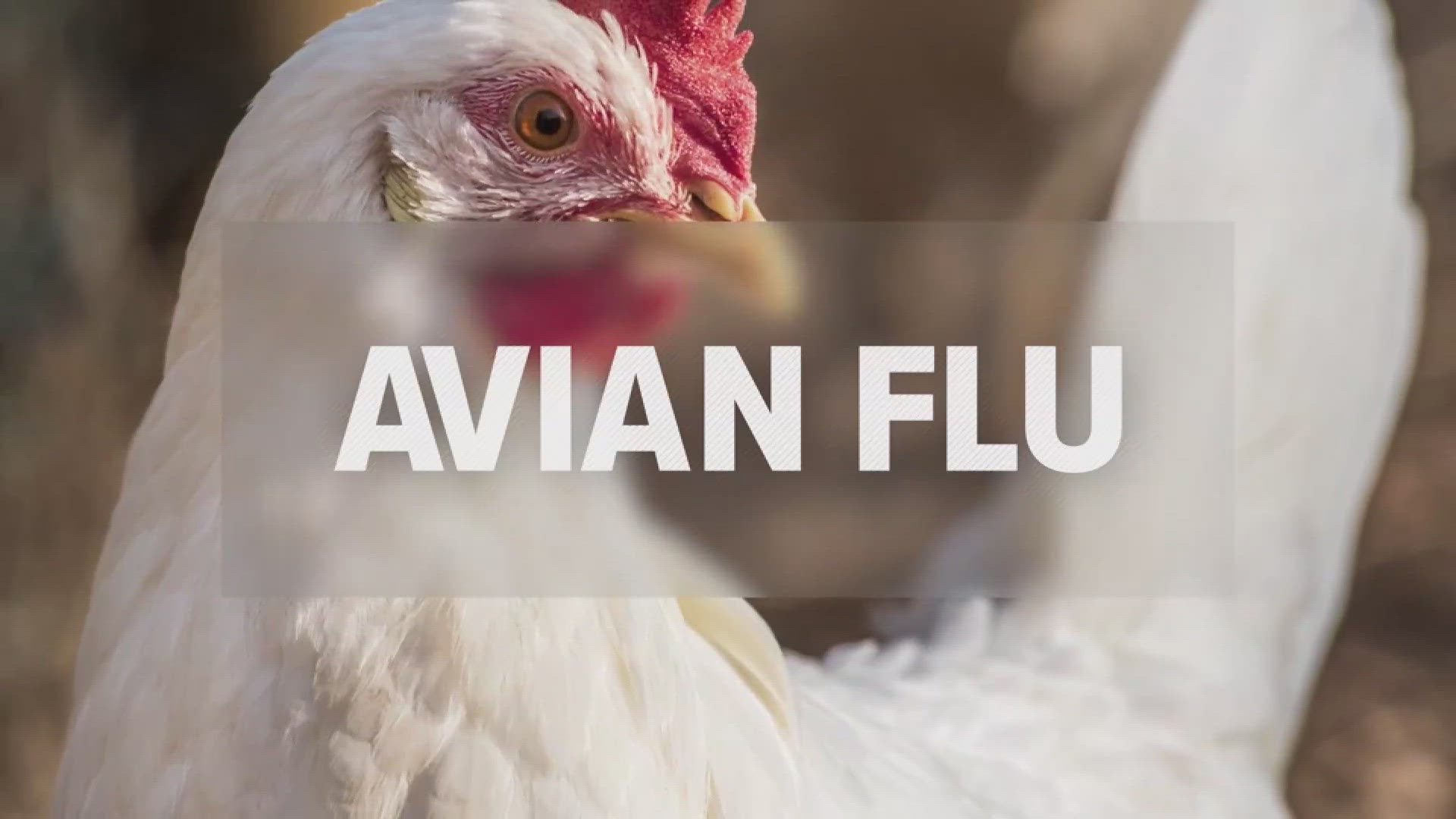SACRAMENTO, Calif. — California Gov. Gavin Newsom declared a state of emergency Wednesday in response to the growing threat of bird flu.
The governor’s decision comes after new cases were detected on dairy farms in Southern California, prompting concerns about the virus’ spread. In Louisiana, a patient is hospitalized with the country's first severe case of the bird flu, which was linked to backyard flocks, the Centers for Disease Control and Prevention said.
Bird flu, also known as avian influenza A (H5N1), is an infectious disease caused by a virus that can cause serious illness and death in birds and mammals, according to the California Department of Public Health.
According to the CDC, there have been 61 reported human cases of bird flu in the United States since April 2024. California accounts for 34 of those.
What is the public health risk?
California public health officials said human interactions with bird flu viruses are rare, but they can happen when the virus gets into a person’s eyes, nose, mouth or when inhaled.
The CDC said human contact with the virus can happen in the following ways:
- When the virus is in the air (in droplets or possibly dust)
- A person breathes it in
- When someone touches something with the virus on it and then touches their mouth eyes or nose
Infections often happen to people after close, prolonged and unprotected contact (no gloves or other protective wear) with infected birds or other animals, the CDC said. People who have close and prolonged contact with infected birds or animals are more at risk of an infection.
Health officials say there is no evidence of person-to-person spread of the virus at this time.
How to avoid contacting the virus
The Centers for Disease Control and Prevention said the best prevention is to avoid sources of exposure. Officials said infected birds can shed the virus in their saliva, mucous and feces.
To protect yourself from the virus, the CDC says to do the following:
- Avoid direct contact with sick or dead wild birds, poultry and other animals and observe them only from a distance
- Wear personal protective equipment (PPE) such as gloves or a mask if you must have direct/close contact with sick or dead wild birds, poultry or other animals
- Don’t touch surfaces or materials (animal letter or bedding material) contaminated with saliva, mucous, or animal feces from wild or domestic birds or other animals that are infected or suspected to be infected
- Don’t touch or consume raw milk or raw milk products from animals with confirmed or suspected infection
WATCH MORE ON ABC10 | Researchers warn UC Davis lab staffing crisis hindering avian flu testing



















